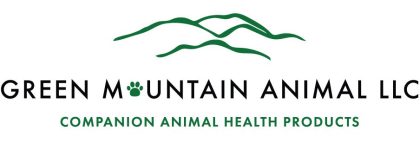Questions? Call Us Toll-Free 802-752-4738 | Email Us
Understanding Regulatory Compliance in the Animal Product Manufacturing Industry
 Regulatory compliance is a critical aspect of the animal product manufacturing industry, ensuring that products are safe, effective, and produced under ethical and sustainable practices. Navigating the complex landscape of regulations can be challenging, but it is essential for maintaining quality standards and avoiding legal issues. In this blog, we’ll explore the key regulations affecting animal product manufacturing and how businesses can ensure compliance.
Regulatory compliance is a critical aspect of the animal product manufacturing industry, ensuring that products are safe, effective, and produced under ethical and sustainable practices. Navigating the complex landscape of regulations can be challenging, but it is essential for maintaining quality standards and avoiding legal issues. In this blog, we’ll explore the key regulations affecting animal product manufacturing and how businesses can ensure compliance.
Key Regulatory Bodies
Various regulatory bodies oversee the manufacturing of animal products, each with its specific guidelines and standards. Understanding these organizations and their requirements is the first step toward compliance.
U.S. Food and Drug Administration (FDA)
The FDA regulates animal feed, pet food, and veterinary drugs, ensuring that these products are safe, nutritious, and properly labeled. Key regulations include:
- Food Safety Modernization Act (FSMA): Focuses on preventing food safety issues rather than responding to them.
- Current Good Manufacturing Practices (cGMP): Standards for manufacturing, processing, and packaging.
Association of American Feed Control Officials (AAFCO)
AAFCO provides guidelines and definitions for animal feed and pet food ingredients, ensuring consistency and safety across the industry. While AAFCO itself does not regulate, its guidelines are often adopted by state agencies.
U.S. Department of Agriculture (USDA)
The USDA regulates the quality and safety of meat and poultry products used in pet foods. It also oversees organic certification for animal products.
Essential Compliance Areas
Compliance with industry regulations involves several critical areas, each requiring attention to detail and adherence to specific standards.
Ingredient Quality and Safety
Ensuring the quality and safety of ingredients is paramount. This involves sourcing from reputable suppliers, conducting regular testing, and maintaining accurate records. Compliance with AAFCO definitions and FDA standards is essential.
Manufacturing Practices
Adhering to cGMP guidelines ensures that products are consistently produced and controlled according to quality standards. This includes proper sanitation, equipment maintenance, and employee training.
Labeling and Packaging
Accurate labeling and packaging are crucial for regulatory compliance. Labels must include ingredient lists, nutritional information, and any health claims must be substantiated. Compliance with FDA labeling requirements helps prevent misbranding.
Record Keeping
Maintaining detailed records of manufacturing processes, ingredient sourcing, and testing results is essential for demonstrating compliance. Records should be readily accessible for inspection by regulatory authorities.
Best Practices for Ensuring Compliance
Implementing best practices can help businesses maintain regulatory compliance and avoid potential pitfalls.
Regular Audits
Conducting regular internal and external audits helps identify areas of non-compliance and implement corrective actions. This proactive approach can prevent issues before they escalate.
Employee Training
Providing comprehensive training for employees ensures they understand regulatory requirements and can perform their duties in compliance with industry standards.
Stay Informed
Regulations and guidelines are continually evolving. Staying informed about changes and updates from regulatory bodies helps businesses remain compliant.
Green Mountain Animal’s Commitment to Regulatory Compliance
At Green Mountain Animal, LLC, we prioritize regulatory compliance in all aspects of our manufacturing processes. Our commitment to quality and safety ensures that our products meet the highest standards.
Strict Adherence to Standards
We adhere to FDA, AAFCO, and USDA guidelines, ensuring that our products are safe, nutritious, and properly labeled. Our rigorous quality control measures and comprehensive record-keeping practices demonstrate our dedication to compliance.
Continuous Improvement
We regularly review and update our processes to align with the latest regulatory requirements and industry best practices. Our ongoing training programs ensure that our team stays informed and compliant.
Contact Green Mountain Animal, LLC
For more information on our compliance practices and high-quality animal products, contact Green Mountain Animal, LLC. We are committed to providing products that meet the highest regulatory standards.
Green Mountain Animal, LLC
802-752-4738
drmetz@grnmtnanimal.com
For more information, visit our website: Green Mountain Animal Contract Manufacture Animal Products

Sorry, comments are closed for this post.